 |
| Resolution 68: Institutional "push" to bring the private economy towards comprehensive development (Photo: KIM DUNG) |
Following the direction of General Secretary To Lam and the expectation of institutional reform from Resolution 68, Vietnam's private economy is facing the opportunity for comprehensive, sustainable, equal and integrated development.
From supplement to pillar - a strong shift in policy thinking
In his latest article on private economic development, General Secretary To Lam emphasized: We must consider the task of promoting private economic development as the current key task. This is not simply an orientation, but a profound change in economic development thinking - from valuing state-owned economic groups to respecting all economic sectors in an equal, fair, and transparent manner.
According to the General Secretary, the private economic sector currently contributes about 51% of GDP, more than 30% of the state budget, and creates more than 40 million jobs - accounting for over 82% of the total workforce in the economy. More importantly, this sector is the main driving force for innovation, promoting national productivity and competitiveness.
“There cannot be a prosperous economy without a strong private sector that masters technology and is deeply integrated into the global value chain,” the General Secretary affirmed.
Based on that ideology, Resolution No. 68 of the Politburo is expected to be a strong “institutional push” for the private economic sector. Sharing at the discussion “New Era - The Era of Rising to Develop Wealth and Prosperity of the Nation” recently organized by the Hanoi Association of Small and Medium Enterprises, Mr. Phan Duc Hieu - Standing Member of the National Assembly's Economic Committee - considered this as the “third milestone” in the process of developing private enterprises.
“After the period of recognizing the presence of the private economy (1988-1990) and the period of granting autonomy (1999-2000), Resolution 68 now opens a period in which private enterprises are positioned as the center of the national development strategy,” Mr. Phan Duc Hieu explained.
According to Mr. Phan Duc Hieu, the core spirit of the Resolution is not only to remove barriers, but also to build trust, helping businesses feel secure in long-term investment. “We are shifting from managing businesses according to the “ask-give” mechanism to a model of comprehensive empowerment and protection,” said Mr. Phan Duc Hieu.
In particular, Mr. Phan Duc Hieu emphasized the commitment to "not criminalize economic relations" and "not apply retroactively to the detriment of businesses" - which used to be the obsession of many businesses in previous inspections.
The knots need to be untied once and for all.
Although the role of private enterprises is increasingly affirmed, reality shows that this sector is still facing many institutional barriers. General Secretary To Lam pointed out: “Private enterprises are still small, fragmented, have weak financial potential, low management level, poor value chain connectivity and limited innovation”.
A major bottleneck for private enterprises is access to resources. According to Mr. Phan Duc Hieu, land, capital and high-quality human resources are three resources that private enterprises find very difficult to access. Meanwhile, state-owned enterprises still hold most of the land resources.
Mr. Phan Duc Hieu cited: “Many small and medium enterprises only need a stable production site to create hundreds of jobs. However, the procedures for land approval, valuation, and allocation are still difficult and complicated, lasting for months, even years.” Therefore, he believes that it is necessary to make land funds transparent and simplify the process to reduce costs and risks for private investors.
One of Mr. Phan Duc Hieu’s strong recommendations is to diversify capital sources, beyond the “shadow” of bank credit. “Private enterprises need to access channels such as corporate bonds, venture capital funds and crowdfunding. The capital market must become a resource that goes hand in hand with the credit market,” said Mr. Phan Duc Hieu.
In his article, General Secretary To Lam also raised the requirement of “maximizing development resources for the private economy”. Accordingly, it is necessary to develop a multi-layered financial ecosystem, supporting businesses to access capital more easily and safely.
In addition, administrative reform, anti-corruption, and reduction of informal costs are also levers to help private enterprises grow. “Administration serving enterprises - serving the country” is the motto throughout the group of solutions proposed by Resolution 68.
According to Mr. Hieu, one of the key points that needs to be corrected in policy thinking is “clearly distinguishing between businesses and individual business owners”. He analyzed, “a business is an independent legal entity. The violation of the law by an individual cannot be a reason to paralyze the entire business system”.
Therefore, he emphasized the importance of commercial judicial reform, shortening the time for dispute settlement, and increasing the efficiency of the arbitration system and economic courts.
Not just growth - but responsible growth
Resolution 68 does not only promote growth, but also requires the private economy to develop on a sustainable basis, with business ethics and social responsibility. “Businesses cannot develop long-term if they do not connect with the community and share values with workers and society,” said Mr. Phan Duc Hieu.
In his article, the General Secretary also affirmed: "The private economy needs to proactively carry out social responsibility, not only financially but also through humane policies, transparent governance practices, and building a corporate culture based on ethics."
The story of Vietnam's private economy is entering a new chapter - where entrepreneurs are no longer just business people, but also co-creators of the nation's future. General Secretary To Lam set a goal that by 2030, the private economy will contribute 70% of GDP, with many private enterprises mastering technology, competing globally, and rising to become leading corporations in the region.
“We are living in a historic moment. If we do not act now, we will miss the opportunity to make the private economy a real pillar,” Mr. Hieu shared.
Mr. Phan Duc Hieu emphasized that the General Secretary’s speech and the spirit of institutional reform in Resolution 68 are the “keys” to open the door to development for private enterprises. But it is the enterprises that will step through that door – with courage, innovation, and a sense of responsibility to the community.
“Each enterprise is a cell. If each cell is healthy, the whole body will be strong. It is time for the private economy to become one of the vital veins, contributing to the formation of a strong, self-reliant and prosperous Vietnam in the new era,” Mr. Phan Duc Hieu affirmed.
According to nhandan.vn
Source: https://baoapbac.vn/kinh-te/202505/nghi-quyet-68-cu-huych-the-che-dua-kinh-te-tu-nhan-huong-toi-phat-trien-toan-dien-1042486/



![[Photo] Anh Hoang - Dinh Duc successfully defended the men's doubles championship of the National Table Tennis Championship of Nhan Dan Newspaper](https://vphoto.vietnam.vn/thumb/1200x675/vietnam/resource/IMAGE/2025/5/23/d6ab3bcac02c49928b38c729d795cac6)



![[Photo] Top players gather at the 2025 Nhan Dan Newspaper National Table Tennis Championship](https://vphoto.vietnam.vn/thumb/1200x675/vietnam/resource/IMAGE/2025/5/23/9ad5f6f4faf146b08335e5c446edb107)



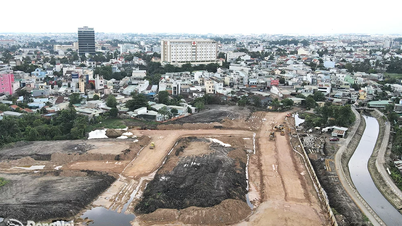
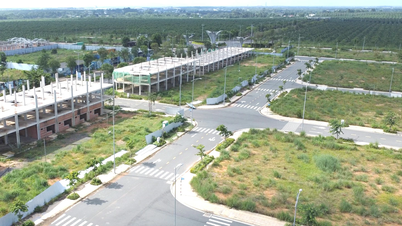
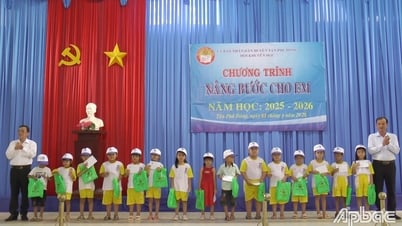
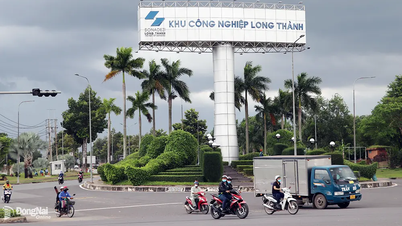




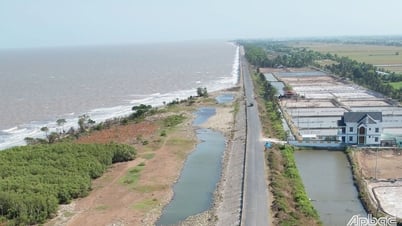
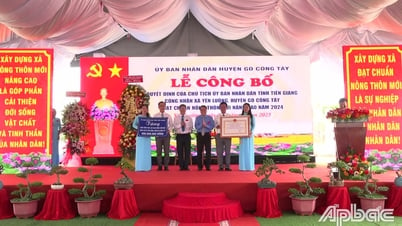





















































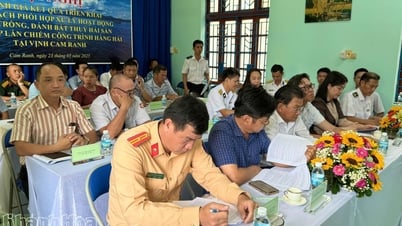

















Comment (0)